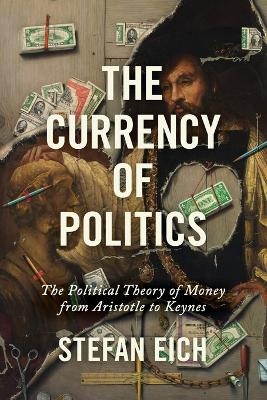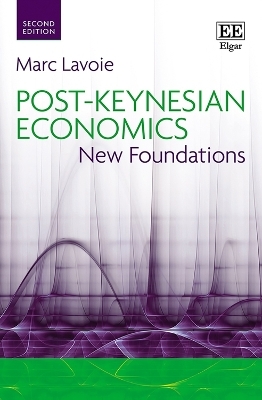
The Euro and the Battle of Ideas
Princeton University Press (Verlag)
978-0-691-17841-7 (ISBN)
Why is Europe’s great monetary endeavor, the Euro, in trouble? A string of economic difficulties in Eurozone nations has left observers wondering whether the currency union can survive. In this book, Markus Brunnermeier, Harold James, and Jean-Pierre Landau argue that the core problem with the Euro lies in the philosophical differences between the founding countries of the Eurozone, particularly Germany and France. But the authors also show how these seemingly incompatible differences can be reconciled to ensure Europe’s survival. Weaving together economic analysis and historical reflection, The Euro and the Battle of Ideas provides a forensic investigation and a road map for Europe’s future.
Markus K. Brunnermeier is the Edwards S. Sanford Professor of Economics at Princeton University and director of Princeton’s Bendheim Center of Finance. Harold James is professor of history and international affairs and the Claude and Lore Kelly Professor of European Studies at Princeton University. Jean-Pierre Landau is former deputy governor of the Banque de France and associate professor of economics at Sciences Po in Paris.
1 Introduction 1
PART I: POWER SHIFTS AND GERMAN-FRENCH DIFFERENCES
2 Power Shifts 17
Lethargy of European Institutions 18
The First Power Shift: From Brussels to National Capitals 20
The Second Power Shift: To Berlin-Paris and Ultimately to Berlin 27
After the Power Shift 33
3 Historical Roots of German-French Differences 40
Cultural Differences 41
Federalism versus Centralism 43
Mittelstand versus National Champions 48
Collaborative versus Confrontational Labor Unions 51
Historical Inflation Experiences 54
4 German-French Differences in Economic Philosophies 56
Fluid Traditions: Switch to Opposites 56
German Economic Tradition 59
French Economic Tradition 67
International Economics 74
PART II: MONETARY AND FISCAL STABILITY: THE GHOST OF MAASTRICHT
5 Rules, Flexibility, Credibility, and Commitment 85
Time-Inconsistency: Ex Ante versus Ex Post 86
External Commitments: Currency Pegs, Unions, and the Gold Standard 89
Internal Commitments: Reputation and Institutional Design 91
Managing Current versus Avoiding Future Crisis 94
6 Liability versus Solidarity: No-Bailout Clause and Fiscal Union 97
The No-Bailout Clause 98
Fiscal Unions 100
Eurobonds 111
Policy Recommendations 115
7 Solvency versus Liquidity 116
Buildup of Imbalances and the Naked Swimmer 117
Solvency 118
Liquidity 119
Crossing the Rubicon via Default 125
Sovereign-Debt Restructuring and Insolvency Mechanism 126
Fiscal Push: Increasing Scale and Scope of EFSF and ESM 127 Monetary Push 131
Policy Recommendations 133
8 Austerity versus Stimulus 135
The Fiscal Multiplier Debate 137
The Output Gap versus Unsustainable Booms Debate 143
Politics Connects Structural Reforms and Austerity 145
The European Policy Debate on Austerity versus Stimulus 148
Lessons and Policy Recommendations 153
PART III: FINANCIAL STABILITY: MAASTRICHT'S STEPCHILD
9 The Role of the Financial Sector 157
Traditional Banking 159
Modern Banking and Capital Markets 162
Cross-Border Capital Flows and the Interbank Market 166
10 Financial Crises: Mechanisms and Management 173
Financial Crisis Mechanisms 175
Crisis Management: Monetary Policy 185
Crisis Management: Fiscal Policy and Regulatory Measures 194
Ex Ante Policy: Preventing a Crisis 206
11 Banking Union, European Safe Bonds, and Exit Risk 210
Banking in a Currency Union 211
Safe Assets: Flight-to-Safety Cross-Border Capital Flows 222
Redenomination and Exit Risks 226
Policy Recommendations 233
PART IV: OTHERS' PERSPECTIVES
12 Italy 237
Battling Economic Philosophies within Italy 237
Mezzogiorno: Convergence or Divergence within a Transfer Union 239
Italy's Economic Challenges 242
Politics and Decline 245
13 Anglo-American Economics and Global Perspectives 249
Diverging Traditions 251
The Politics of Looking for Recovery: The United States 261
The Politics of Thinking Outside Europe: The United Kingdom 267
The Global Perspectives: China and Russia 279
Conclusion 286
14 The International Monetary Fund (IMF) 287
The IMF's Philosophy and Crisis Management 289
The IMF's Initial Involvement in the Euro Crisis 295
The IMF and the Troika 300
A Change in the IMF's Leadership 304
Loss of Credibility: Muddling Through, Delayed Greek PSI 306
15 European Central Bank (ECB) 313
The ECB before the Crisis: Institutional Design and Philosophy 315
The ECB's Early Successes and Defeats 325
The ECB and Conditionality 331
Lending and Asset Purchase Programs 343
Single Supervisory Mechanism (SSM) for European Banks 368
Taking Stock: Where Does the ECB Stand? 372
16 Conclusion: Black and White or Twenty-Eight Shades of Gray? 375
Acknowledgments 391
Notes 393
Index 427
| Erscheinungsdatum | 13.09.2018 |
|---|---|
| Zusatzinfo | 20 b/w illus. |
| Verlagsort | New Jersey |
| Sprache | englisch |
| Maße | 155 x 235 mm |
| Themenwelt | Wirtschaft ► Volkswirtschaftslehre ► Finanzwissenschaft |
| Wirtschaft ► Volkswirtschaftslehre ► Makroökonomie | |
| ISBN-10 | 0-691-17841-0 / 0691178410 |
| ISBN-13 | 978-0-691-17841-7 / 9780691178417 |
| Zustand | Neuware |
| Haben Sie eine Frage zum Produkt? |
aus dem Bereich


